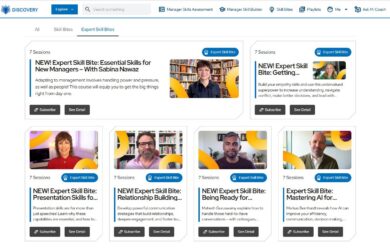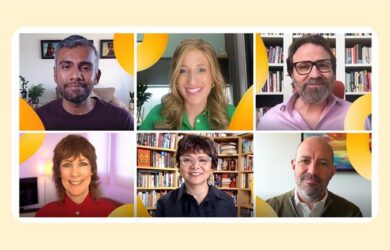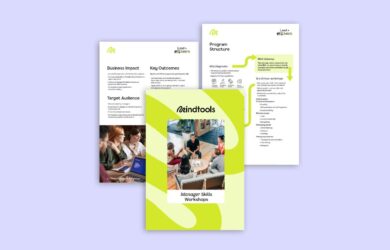I’ve worked in some unhealthy work environments in my career – and I’m not talking about the ones where everyone smoked at their desks and there were no windows. These were places where the culture was all wrong, and most people felt discontented and unmotivated.
In one of my first jobs, the boss was a bully. She favored those who sucked up to her, and she shouted mercilessly at those who didn’t. It was hell.
Later in my career, when I was a reporter for an international newswire, we all had to sit at our desks for 10 hours a day, regardless of whether or not we had work to do. It was demoralizing and surprisingly draining. No one felt happy or well.
A Healthier Workplace
So it was interesting to drill down into the reasons – and remedies – for such unhealthy workplaces with Sir Cary Cooper, Professor of Organizational Psychology and Health at Manchester Business School in the U.K.
He’s spent years studying health in the workplace – and how to improve it. And he’s recently brought his ideas and experience together in a new book, “The Healthy Workforce: Enhancing Wellbeing and Productivity in the Workers of the Future,” co-written with Stephen Bevan of the Institute for Employment Studies.
More Than Pilates and Beanbags
As part of the growing recognition that wellbeing is a key component of growth and stability, in recent years a lot of employers have started offering their people perks, like free Pilates lessons and fruit smoothies.
But according to Cary Cooper, while “it’s nice to have sushi at your desk, and massages,” it isn’t nearly as important as having a carefully designed wellbeing strategy, driven from the top – often by a dedicated director of health and wellbeing.
Ideally, these people will conduct regular “wellbeing audits,” to determine the mental and physical health of the workforce. This research helps them to develop their strategy, including interventions to target the problems that have emerged. The success of the strategy is then measured through further wellbeing audits, and tweaked accordingly.
Wellbeing Audits
The first step in the audit is to ask employees how they feel and why, through surveys and psychometric tools. After all, if you don’t ask, how can you know?
“In a sense, it’s like going to a GP, or internist in the U.S.,” Cooper says. “You don’t want that person to be writing out a prescription for you before you’ve opened your mouth. What you want is that person to take bloods, to take your blood pressure, in other words to do a diagnostic to find out about you. Well, the same thing applies in the whole area of employee health and wellbeing.”
Thinking back to my newswire job, a wellbeing audit like this would have revealed some serious problems, but they may have been easy to fix. For instance, the bureau chief was a talented, driven individual who was always chasing the next story. But the rest of us needed a manager to support us, not a star reporter.
The Importance of Management
Managers are pivotal to good workplace health, because they’re on the ground, watching and listening for signs that something might be off. But they need great soft skills to be effective. And like my former boss, many simply don’t have them.
“In many developed countries, you find that people get promoted and recruited based on their technical skills, not their people skills,” Cooper points out. “It’s not their fault, in a way, because they were hired because they’re really good accountants or good marketing people. But when it comes to actually managing, you get into a managerial role… you have issues.”
This skills gap is the kind of thing a wellbeing audit can identify. Managers deemed to be lacking can be offered training in the social skills and emotional intelligence (EQ) needed to support people effectively in the changing world of work.
We’re Not All Born Managers
Cary Cooper reckons that about 30 percent of technically proficient people are also adept at these soft skills. Around 50 percent could become great managers with the right training. But some managers – maybe 20 percent – won’t benefit from training at all.
“That’s the reality of life,” Cooper says, and senior leaders need to recognize this and move these people out of line management. Only then will organizations build and maintain a healthy work culture, where people love coming to work, feel valued, and are motivated.
“It’s about the hours of work, whether people have manageable workloads, realistic deadlines, have a clear idea of what their job is about, they’re not contacted by email at weekends and while they’re on holiday,” Cooper elaborates.
“The organization has to look at what it can do to make people feel valued, trusted, that they feel they’re cared about, that the organization is committed to their health and wellbeing.”
This starts with hiring and developing managers with people skills, regardless of their technical prowess.
Listen to My Interview With Cary Cooper
Discover fascinating insights from some of the world’s leading business figures with my series of Mind Tools Expert Interviews.
If you’re not a Mind Tools Club member, you can join here, and access over 2,400 resources, including more than 200 Expert Interviews. For corporate licensing, request a demo from one of our team.
Download “The Healthy Workforce” With Mind Tools
Head over to the Mind Tools store, where you can also get a downloadable eBook of Cary Cooper’s “The Healthy Workforce: Enhancing Wellbeing and Productivity in the Workers of the Future,” co-written with Stephen Bevan.
Would you consider your workplace “healthy”? What do you think are the most important factors affecting working health? Let us know in the comments section below!





Comments
peter mugisha says
4 years agoi am very interested in this topic. thank you.
Veena Mahor says
4 years agoIt's also high time that we start talking about the healthy learning environment at Educational institutions. Pandemic has made us suffer a lot and we have become more distant from other human beings in real.
Sarah Harvey says
4 years agoThat's a very valid point Veena. Hopefully, it is now time to start building back some of these connections and making new ones. Human connection at work, in education, and life generally, is so very important to our well-being.
Sarah
Mind Tools Coach